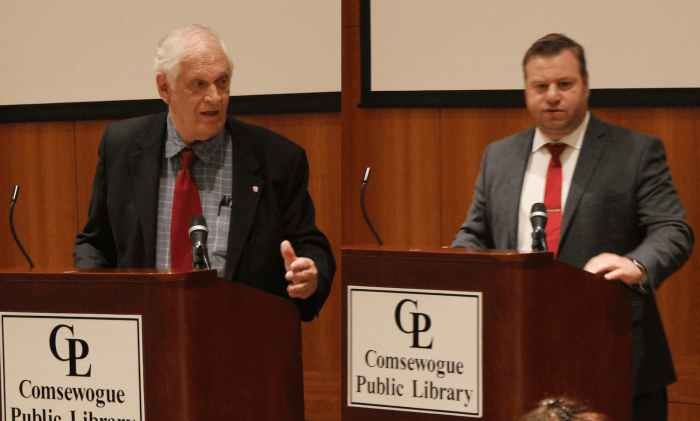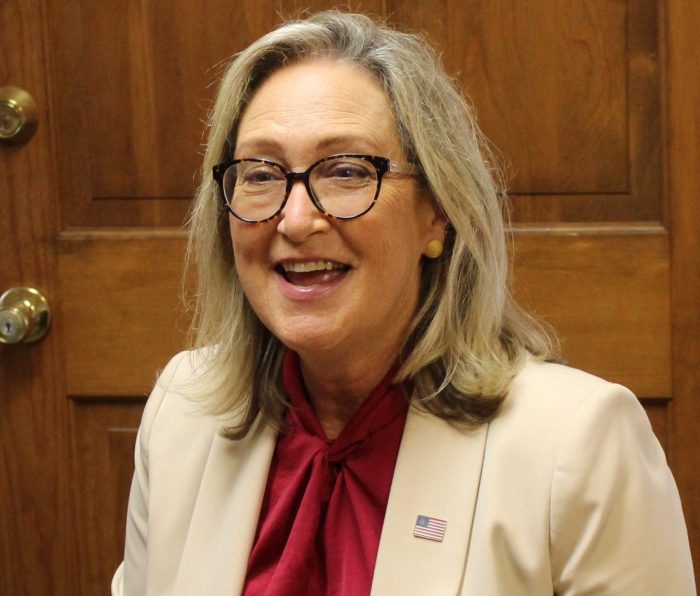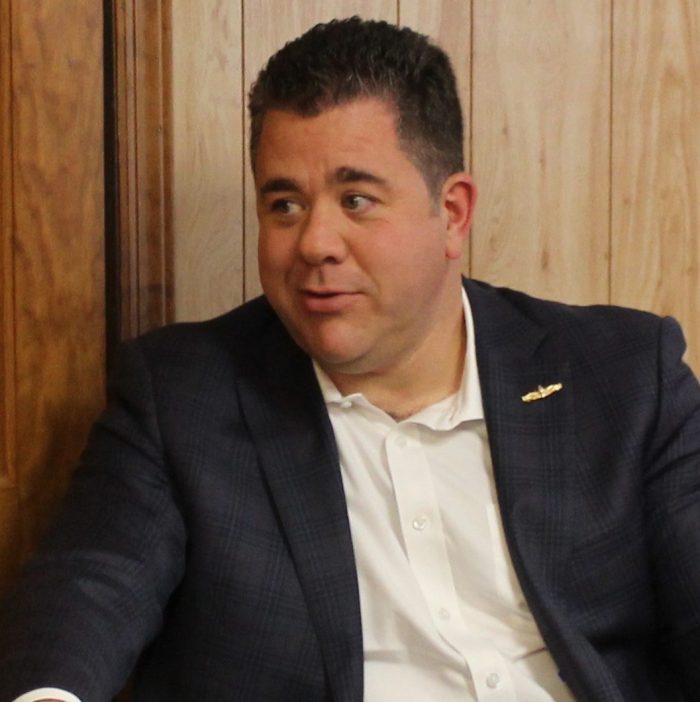The Port Jefferson Station/Terryville Civic Association gathered at Comsewogue Public Library on Tuesday, Nov. 15, for its monthly general meeting.
Representing the Comsewogue School District, students Kylie and Max delivered a string of reports on various upcoming events within the district. Kylie referred to the high school’s recent annual Trick-or-Treat Street as “a huge success.”
Max reported parent-teacher conferences would take place on Monday, Nov. 21, from 5 to 8 p.m. and Wednesday, Nov. 23, from 8 a.m. to 12 p.m. Community members are welcome to attend Spanish Heritage Night on Dec. 9 from 7-9 p.m. in the high school cafeteria.
Ed Garboski, president of PJSTCA, announced that the area had received a grant for streetlights along Route 112. Town of Brookhaven Councilmember Jonathan Kornreich (D-Stony Brook) facilitated the funding, according to the civic’s leadership.
These funds, combined with money made available to the community through the new Nissan dealership, should cover lights for the entire strip. The body passed a resolution to draft a letter thanking the councilmember and his staff for their efforts to illuminate the corridor.
PJSTCA vice president Sal Pitti announced a recent “huge arrest” related to catalytic converter theft, a crime trend throughout the region. Pitti reported that law enforcement arrested 21 individuals in a multistate initiative, charging 13, two of whom were from Suffolk County.
“This was a Department of Justice operation that was done with multiple agencies across multiple states,” he said. “Mind you, this does not mean it stops. They got a lot of people that we assume are the main people, but they might not be.” He added, “Arrests are being made on it, but we don’t know where it will go from there.”
Garboski discussed spring plans for the community garden near the middle school. “If anyone has ideas, wants to volunteer or help get it moving for the spring, please let us know,” he said.
The members also discussed a 5-acre, 40-unit planned retirement community to be developed on the corner of Terryville and Old Town roads. Civic member Lou Antoniello, who was involved in the 2008 Comsewogue Hamlet Comprehensive Plan, described the historical background behind this local development discussion.
“Back in 2008, the people who owned that [parcel] were the people who owned the shopping center adjacent to it,” he said. “During the hamlet study, they made it known that they wanted to build a shopping center next to the one they already owned.” He added, “The people who lived in that community said they didn’t want it.”
Through a series of compromises made during the time of the hamlet study, the community and the property owners agreed upon zoning that property for a small retirement community. Since then, the Town of Brookhaven has rezoned that land to PRC Residence District.
Civic member Ira Costell suggested the community take a greater interest in that development as the process works through the Brookhaven Planning Board.
“That owner has an as-of-use right to develop that property in that fashion,” he said. “It’s going to be important that we pay attention to the site plan review process at the Planning Board level to decide if we want to influence how that development proceeds.”
Later this month, the civic’s executive team will meet with town officials and Planning Board members. Asking the members how to represent the interests of the community, Pitti offered that it would be wise if he and others pressed the town to limit all new development to residential rather than commercial.
Garboski and Pitti announced during the October meeting they had recently sold their homes, triggering a reshuffling of the civic’s top two posts. [See story, “Port Jefferson Station/Terryville civic … shake-up at the helm.”]
Inquiring about the coming transition process for the civic leadership, Costell proposed beginning those procedures now.
“Perhaps we can start to talk about a transition group or committee that can join in on some of these conversations and shape where things go in the next several months,” he said. “I think we really need to have a coalition that we can build here so that we can move forward given the changing tenor of the times here.”
Responding, Pitti suggested that he and Garboski intend to finish this year as usual and begin working with possible successors starting in 2023. However, he stated that bringing other members to the upcoming meeting on the Terryville Road PRC development would be unwise.
Costell’s concerns centered less around any one meeting and more around the overall transition process. “I’m trying to indicate that we don’t want to throw somebody into the deep end of the pool next year,” he said. “I’m looking for a principle, an idea, for how we can incorporate some of the people who want to shape this community beyond your time here.”
Finding some common ground, Garboski said members must decide who will fill these top positions given the demands and constraints. “Amongst yourselves, first figure out who wants to take this over,” he said.
Resolving the matter, Costell offered that the organization is working toward a resolution. “You’re making the perfect point that some sort of transition is an ideal circumstance,” he said. “If you’re comfortable with how that’s happening, and the group is as well, that’s fine by me.”
The civic will reconvene Tuesday, Dec. 13, at 7 p.m














